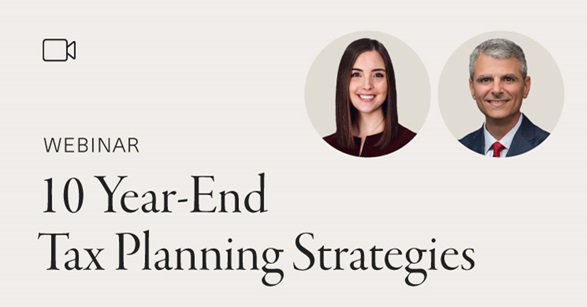- Types of bank accounts include — but aren’t limited to — checking accounts, savings accounts, certificates of deposit (CDs) and individual retirement accounts (IRAs).
- Each type of bank account has a specific purpose; checking accounts, for example, are designed for day-to-day transactions, while savings accounts help your money grow over time.
- A sound approach to money management generally involves a combination of bank accounts that allows savings to grow without impeding quick access to cash.
You work hard for your money, and reaching your financial goals requires protecting your funds, as well as finding ways to help your money work harder for you.
Selecting the right bank account is a good step toward pain-free money management. Understanding the differences between various bank accounts is important, so you can make informed decisions about which accounts to open.
Though account offerings vary by financial institution, most banks offer the following types of bank accounts:
- Checking accounts
- Savings accounts
- Certificates of deposit (CDs)
- Individual retirement accounts (IRAs)
Read on to learn more about these different types of bank accounts and the benefits and drawbacks of each.
Checking accounts
A checking account is among the most common type of bank account. These accounts come in many forms, and features may vary by institution.
How checking accounts work: Designed for day-to-day transactions, as well as receiving regular payments, a checking account enables you to pay bills, make purchases and receive deposits, such as direct deposits from your employer for your salary.
Reasons to consider opening a checking account: Opening a personal checking account allows you to manage your everyday expenses and should be a core part of your basic banking needs.
|
Benefits |
Drawbacks |
|
|
Savings accounts
You may have heard the value of “paying yourself first.” A savings account with features that complement your financial needs while helping your money grow can make this process easier.
How savings accounts work: A savings account is designed to help you store your money long term. Savings accounts, especially high-yield savings accounts, also allow you to earn interest on your deposits. Each statement period, your financial institution will pay an established variable interest rate every single day on the funds in your account, and that may help grow your savings over time.
Reasons to consider opening a savings account: Savings accounts are a useful way to store your emergency fund, as well as your savings toward other long-term goals, such as a down payment on a home or your dream vacation.
|
Benefits |
Drawbacks |
|
|
Money market accounts
Opening a money market account provides the benefits of a savings account with some of the benefits of a checking account.
How money market accounts work: Like a regular savings account, a money market account allows you to earn interest on your funds and may even offer more competitive variable interest rates than a standard savings account. At the same time, you’re able to withdraw money without incurring a penalty, though your financial institution may limit the number of transactions allowed per statement cycle.
Why you should open a money market account: Money market accounts are a good option for anyone who’d like to earn interest on their savings while still retaining relatively flexible access to their cash.
|
Benefits |
Drawbacks |
|
|
Certificates of deposit (CDs)
As you develop a more complex savings strategy, you may wish to incorporate a certificate of deposit (CD) into your financial plan.
Note: this section does not include exceptions for liquid CDs.
How CDs work: Intended as an alternative to a traditional savings account, a CD allows you to earn a fixed interest rate over a set period of time, known as the term. The length of the term is defined in your agreement with your financial institution. You may be penalized for withdrawing before the CD matures.
Reasons to consider investing in CDs: CDs are usually best suited to account holders with long-term savings goals. However, different types of CDs are available for those with different financial goals.
|
Benefits |
Drawbacks |
|
|
Individual retirement accounts (IRAs)
Saving for retirement is likely a key part of your financial strategy, and opening an individual retirement account (IRA) can help. Designed for true long-term savings, these tax-advantaged accounts offer the opportunity to reap higher returns than you’d receive with traditional interest-earning savings accounts.
How IRAs work: IRAs are designed to help you save for retirement on a tax-free or tax-deferred basis, depending on the account type. Traditional IRAs generally receive pre-tax contributions, and qualified withdrawals are taxed as income at the time of withdrawal. Roth IRAs, on the other hand, are funded with after-tax dollars, and qualified withdrawals are tax-free.
Why you should open an IRA: IRAs are a popular choice for those aiming to maximize their retirement goals with tax-advantaged investments. Self-employed savers may find them useful, though they’re often used alongside employer-sponsored 401(k) plans as well.
|
Benefits |
Drawbacks |
|
|
Why Should I Open a Bank Account?
Opening a bank account is essential for storing and managing your money safely. The right accounts give you access to your funds, allow you to generate interest and make your money work harder for you while helping you plan for the future you want.
Most account owners will need multiple accounts to meet their personal finance needs, and a combination of the accounts listed above can help you do just that.
Choosing the right bank account for you
When opening a bank account, it’s just as important to choose the right bank or financial institution as it is to choose the right type(s) of accounts.
As you evaluate potential banking partners, consider the following:
- Whether the bank is Federal Deposit Insurance Corporation (FDIC) insured. The FDIC insures up to $250,000 per depositor, per FDIC-insured bank, per account ownership category. Choosing a financial institution that is FDIC insured means your money is protected up to the applicable limits in the event of bank failure
- Whether the bank offers competitive interest rates that maximize the interest you earn on your deposits
- Whether the accounts have minimum balance requirements and whether those minimums fit your current financial situation
- Whether the accounts have associated fees and whether those fees can be potentially avoided
Opening a bank account begins a long-term partnership with a bank, so don’t settle for less than you need. Find out whether First Republic’s personal banking options are the right solution for you.




